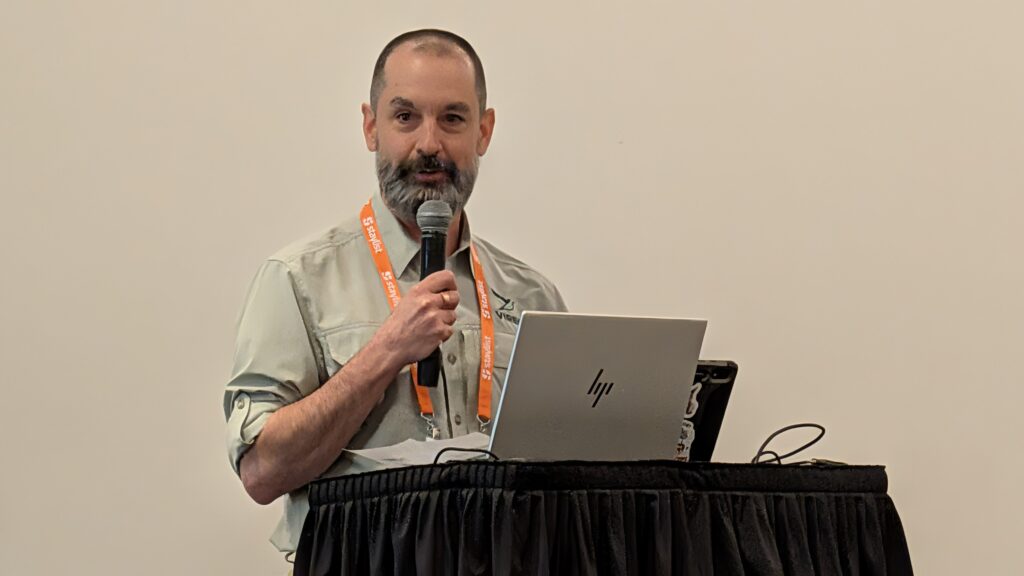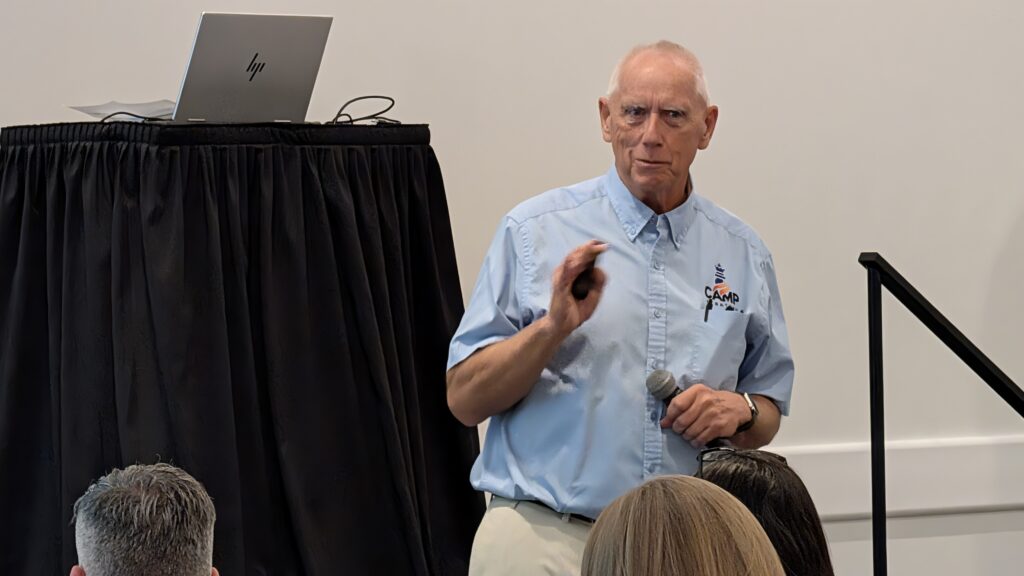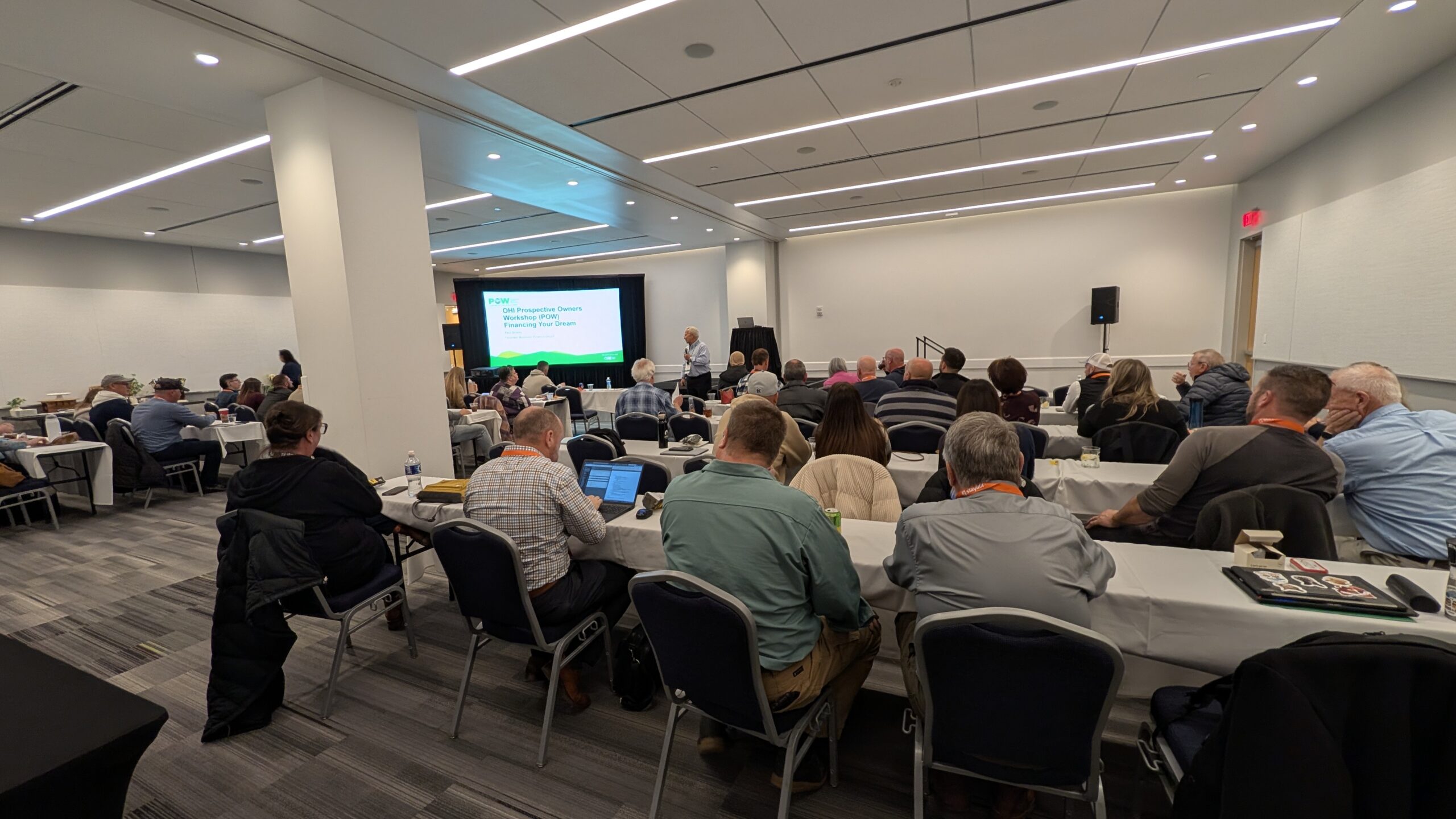The Outdoor Hospitality Conference & Expo (OHCE), the industry’s premier trade show, officially begins today in Louisville, Kentucky, and runs through November 12, but learning opportunities began yesterday with a pre-conference session that prepared aspiring campground owners with the essential tools to transform their ideas into successful outdoor hospitality ventures.
The half-day workshop, “Prospective Owners’ Workshop (POW!),” offered expert insights into property selection, financing, park design, and operations—laying a solid foundation for participants as the industry gathers for three days of learning, networking, and innovation.
Known for its focus on professional development and connection, OHCE continues to serve as a leading platform for growth and collaboration within the outdoor hospitality sector.
Recognized as a “Top 50” trade show by Trade Show Magazine, the event draws campground owners, operators, and entrepreneurs eager to learn from industry experts and explore the latest products and services shaping the field.
The November 9 session, running from 2 to 6:30 p.m. ET, was specifically designed for individuals exploring campground ownership or preparing to launch new parks. It provided a clear roadmap for those looking to move from concept to construction while navigating the challenges of the outdoor hospitality business.

The workshop featured several industry leaders, each sharing specialized insights into key areas of development and management.
Speakers included Jayne Cohen of Campground Consulting Group, Greg Emmert of Vireo, Lisa Courtney of Camp Jellystone, Cathy Reinard of Campground Brokers of America, Paul Bosley of Business Finance Depot, Jeff Hoffman of Camp Strategy, Paul and Terry Munoz of Campground Consulting Group.
Hoffman’s presentation, titled “Good Decisions Now = Fewer Surprises Later,” emphasized the importance of preparation and due diligence, urging participants to educate themselves before investing, run feasibility and pro forma analyses early, investigate property details, and establish scalable systems from the outset.
He also outlined several “danger zones” that can derail projects if overlooked. These risks were divided into categories related to building, buying, and people management.
Under the Build category, the session warned about under-scoped utilities, septic permit issues, road specifications, wetlands mitigation, contractor availability, and cost inflation.

The Buy category also addressed challenges such as misstated net operating income, seasonal cash flow swings, underpriced long-term guests, unmetered electricity, and compliance with ADA or building codes.
Additional pitfalls affecting both types of ventures included weak standard operating procedures, poor inventory controls, inconsistent pricing strategies, and inadequate working capital.
The discussion also noted that human factors—like post-acquisition culture shock or leadership drift during construction—can impact operational success as much as financial planning.
A major focus of Emmert’s presentation was the “Four Pillars of Site Evaluation,” a Green/Yellow/Red system for assessing property readiness. The pillars—Location & Access, Utilities, Permits & Entitlements, and Inspections—help future owners evaluate sites objectively and identify risks early in the process.
The session also explained how to use a “Location Screen” to assess a site’s draw radius, access quality, and surrounding land uses. Zoning status also plays a crucial role, with permitted uses marked “green,” conditional uses “yellow,” and prohibited zones “red.”
Hen further stressed that “Access ≠ Distance,” emphasizing that the type and quality of road access can be as important as proximity to destinations. A paved collector road, for instance, supports emergency access and long-term maintenance, while a farm track—despite similar drive times—can create insurance and approval challenges.
By the end of the session, attendees walked away with a structured understanding of the steps required to develop successful campground operations. The speakers detailed insights on financing, site evaluation, and risk management provided participants with confidence and clarity as they prepared to join the outdoor hospitality industry.
The pre-conference workshop set a strong foundation for OHCE 2025, reinforcing the event’s mission to equip current and future campground owners with the tools, knowledge, and connections needed to build sustainable businesses in a growing market. Modern Campground is on site for full coverage of the conference for the entire conference until November 12.
Featured image by Brian Searl/Modern Campground


